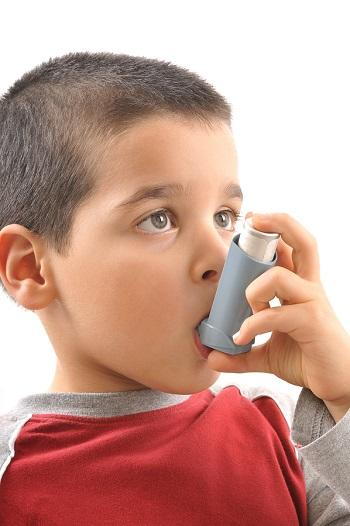FAQs about Asthma
- posted: Jul. 31, 2019
Find out everything you need to know about childhood asthma and treatments.
Has our Gaithersburg, MD, pediatrician Dr. Farnoush Jamali at Prime Pediatrics just recently told you that your child has asthma? This is  one of the most common chronic respiratory conditions to affect children. It’s normal to have questions and concerns after your child’s diagnosis. Here’s what you should know about asthma.
one of the most common chronic respiratory conditions to affect children. It’s normal to have questions and concerns after your child’s diagnosis. Here’s what you should know about asthma.
What is asthma?
Asthma is the result of chronic inflammation within the lining of the airways, which makes it difficult for a person to breathe.
Common symptoms and warning signs of childhood asthma include:
- Difficulty breathing
- Wheezing (an audible whistling sound) when breathing in
- Tightness in the chest
- Coughing that gets worse at night
- Rapid, shallow breathing
- Recurring respiratory infections
Whether you notice these symptoms in your child or your child is complaining about having trouble breathing it’s important that you bring them in right away for care.
When does asthma start?
Asthma can appear at any age; however, it’s common for most people with asthma to experience symptoms by the time they are 10 years old. Most children with asthma experience their first attack before 6 years old.
What can trigger an asthma attack?
There are certain things that can make asthma symptoms worse or even lead to an attack. These triggers include:
- Viral infections such as a cold or flu
- Exercise
- Cold weather
- Indoor and outdoor allergens (e.g. pet dander; pollen)
- Air pollution and other environmental irritants
- Smoking
- Certain foods or additives
- Stress
- Certain medications (e.g. aspirin)
Is asthma curable?
Currently there is no cure for asthma; however, our children’s doctor has helped countless children living in Gaithersburg, MD, get control of their asthma symptoms and to improve their quality of life with simple lifestyle changes and medications.
How is asthma treated?
Along with avoiding possible triggers through lifestyle changes, your children’s doctor will also provide long-term medication to help manage symptoms to reduce asthma attacks. Controllers are used to reduce inflammation and open up airways. These inhaler medications are used every day to prevent symptoms from getting worse.
Your child will also be prescribed a “fast-acting” medication, which should only be used when they feel symptoms of an attack coming on. When taken as soon as symptoms appear this medication can prevent an attack.
If your child is experiencing problems breathing it’s important that you schedule an evaluation as soon as possible with your pediatrician in Gaithersburg, MD. Here at Prime Pediatrics, we have helped countless children manage their asthma symptoms; let us help your child get their breathing under control.
